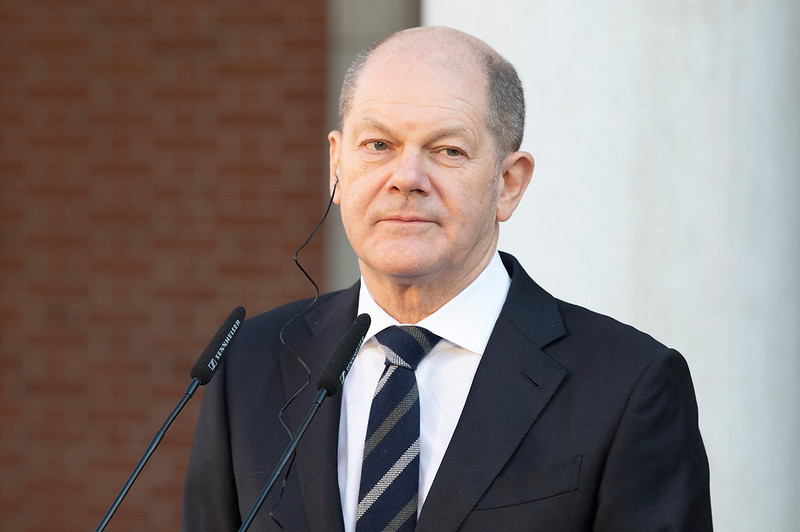Whether the EU should prioritise “enlargement” or “deepening” is a perennial topic that has been discussed in various constellations for decades. Also in this European Council, both issues were on the agenda – and at first glance, the priority of the leaders was clear: While they unanimously granted candidate status to Ukraine and Moldova, the European Parliament’s call for a Convention on treaty reform in the wake of the Conference on the Future of Europe (CoFoE) remained unanswered. The conclusions dealt with the follow-up of the CoFoE in only three meagre paragraphs, without making concrete commitments or even mentioning a Convention.
Internal divisions
The reason for this is, of course, the European Council’s internal division on this issue. On the one hand, France’s Emmanuel Macron spoke out in favour of treaty reform right at the end of the CoFoE, and Germany, Italy, Spain, the Netherlands, Belgium and Luxembourg supported the idea in a joint non-paper. On the other hand, 13 other member states, mostly from Northern, Central and Eastern Europe, declared in a joint non-paper “that Treaty change has never been a purpose of the Conference”.
Since a simple majority in the European Council is required in order to open a Convention, a decision to this effect would only have been possible in a close and contested vote, if at all. This would neither have been in line with the institution’s customs nor would it have been a good basis for the eventual success of a treaty reform.
Reform as a precondition for enlargement
However, it is thoroughly unlikely that proponents of a “deeper” EU will just back down now. Rather, the lack of support for a Convention will probably just lead to a re-framing of the debate on institutional reforms. The German government, for example, has already signalled a departure from the idea that the CoFoE should be followed by a Convention. According to Foreign Minister Annalena Baerbock, this was “only one possibility” among “many other proposals”.
At the same time, however, Chancellor Olaf Scholz described internal reforms of the EU – such as an extension of qualified majority voting, but also “strengthening democracy and the rule of law” – as a necessity to maintain the EU’s capability to act after a possible enlargement. This argument is in line with the European Council conclusions, which contain an explicit reminder that “the EU’s capacity to absorb new members” must be taken into account during the accession process of the new candidate countries.
Potential for frustration
Thus, institutional reform might not be discussed as an opportunity for further democratic development of the EU (as the European Parliament would have wished), but rather as a precondition for the geopolitical goal of enlargement; and it might not take the form of a Convention, but of simplified revision procedures. But the reform debate will go on, and it is doubtful whether this re-framing will make it any easier or less controversial.
A Convention would offer a forum to explicitly address institutional issues and negotiate package deals among institutions and member states. Without it, these questions threaten to become an elephant in the room of the enlargement agenda – with considerable potential for frustration also for the new candidate countries, which themselves have little opportunity to contribute to “the EU’s capacity to absorb new members”, but will depend on today’s member states overcoming the current deadlock on institutional reform.
|
This article was first published as a contribution to the TEPSA European Council Experts’ Debrief June 2022. |


Keine Kommentare:
Kommentar veröffentlichen
Kommentare sind hier herzlich willkommen und werden nach der Sichtung freigeschaltet. Auch wenn anonyme Kommentare technisch möglich sind, ist es für eine offene Diskussion hilfreich, wenn Sie Ihre Beiträge mit Ihrem Namen kennzeichnen. Um einen interessanten Gedankenaustausch zu ermöglichen, sollten sich Kommentare außerdem unmittelbar auf den Artikel beziehen und möglichst auf dessen Argumentation eingehen. Bitte haben Sie Verständnis, dass Meinungsäußerungen ohne einen klaren inhaltlichen Bezug zum Artikel hier in der Regel nicht veröffentlicht werden.